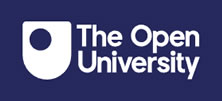Course Summary
The world is at a turning point. In these times of uncertainty and change, this postgraduate diploma provides you with an advanced grounding in the key theories, approaches and issues that are shaping contemporary global development and the global challenges we face.
College Link
Career Sectors
This course prepares you for working in the Career Sectors below. Follow the links to get a fuller understanding of the sectors you are preparing for.
Entry Requirements
We recommend that you hold a UK bachelors degree (or equivalent), or have had experience of working in a development-related agency (international or local), in either a paid or voluntary capacity, prior to starting this qualification. However, these requirements are not compulsory and you will not be required to provide any supporting documentary evidence.
Your spoken and written English must be of an adequate standard for postgraduate study. If English is not your first language, we recommend that you will need a minimum overall score of 6 and minimum score of 5.5 in each of the four components: reading, writing, speaking and listening under the International English Language Testing System (IELTS). Please see the IELTS website for details (https://www.ielts.org/). If youre not sure whether your English skills are good enough, there is some help and guidance at our Skills for OU Study website.
Application Details
See Course Web Page link for next start date.
Fees
The Student
Career Interests
This course is typically suited for people with the following Career Interests. If these interests do not describe you, this course may prepare you for work you may not find satisfying.
Social
The Social person's interests focus on interacting with the people in their environment. In all cases, the Social person enjoys the personal contact with other people in preference to the impersonal dealings with things, data and ideas found in other groups.
Many will seek out positions where there is direct contact with the public in some advisory role, whether a receptionist or a counsellor. Social people are motivated by an interest in different types of people and like diversity in their work environments. Many are drawn towards careers in the caring professions and social welfare area, whilst others prefer teaching and other 'informing' roles.
Naturalist
Not surprisingly, some aspect of the natural sciences will run through the Naturalist's interests - from ecological awareness to nutrition and health. People with an interest in horticulture, land usage and farming (including fish) are Naturalists.
Some Naturalists focus on animals rather than plants, and may enjoy working with, training, caring for, or simply herding them. Other Naturalists will prefer working with the end result of nature's produce - the food produced from plants and animals. Naturalists like solving problems with solutions that show some sensitivity to the environmental impact of what they do. They like to see practical results and prefer action to talking and discussing.
Career Progression
Development scholars and practitioners are highly employable social scientists. They go on to a wide range of destinations after graduation, including:
Development managers
Aid workers
Government policy makers
Development consultants
Business managers
Environmental consultants
Data analysis and visualisation using development techniques
Transport planners
Commercial analysts
Financial services
Field centre instructors
Teachers
In addition, a significant number of postgraduate students choose to register for doctoral studies in a variety of specialised areas.
Duration
How long it takes
Most students study the Postgraduate Diploma in Global Management part-time, completing 60 credits a year over two years. Typically, this means 1620 study hours each week.
You must complete the Postgraduate Diploma in Global Management within eight years.


